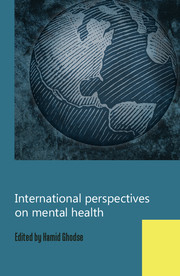Book contents
- Frontmatter
- Contents
- List of contributors
- Preface
- Africa
- Asia
- Australasia
- Europe
- Albania
- Austria
- Republic of Belarus
- Belgium
- Bosnia and Herzegovina
- Croatia
- Czech Republic
- Estonia
- Finland
- France
- Germany
- Greece
- Hungary
- Ireland
- Italy
- Lithuania
- Malta
- The Netherlands
- Norway
- Poland
- Portugal
- Romania
- Russian Federation
- Serbia
- Slovak Republic
- Slovenia
- Spain
- Sweden
- Switzerland
- Ukraine
- United Kingdom
- North America
- South America
- Index
Hungary
from Europe
Published online by Cambridge University Press: 02 January 2018
- Frontmatter
- Contents
- List of contributors
- Preface
- Africa
- Asia
- Australasia
- Europe
- Albania
- Austria
- Republic of Belarus
- Belgium
- Bosnia and Herzegovina
- Croatia
- Czech Republic
- Estonia
- Finland
- France
- Germany
- Greece
- Hungary
- Ireland
- Italy
- Lithuania
- Malta
- The Netherlands
- Norway
- Poland
- Portugal
- Romania
- Russian Federation
- Serbia
- Slovak Republic
- Slovenia
- Spain
- Sweden
- Switzerland
- Ukraine
- United Kingdom
- North America
- South America
- Index
Summary
The Republic of Hungary is a landlocked country of 93 000 km2 in central Europe; it is bordered by Austria, Slovakia, Ukraine, Romania, Serbia, Croatia and Slovenia. Its official language is Hungarian. Hungary joined the European Union (EU) in 2004. About 90% of the population of c. 10 million is ethnically Hungarian, with Roma comprising the largest minority population (6–8%). Currently classified as a middle-income country with a gross domestic product (GDP) of $191.7 billion (2007 figure), Hungary's total health spending accounted for 7.4% of GDP in 2007, less than the average of 8.9% among member states of the Organisation for Economic Co-operation and Development (OECD, 2009). The proportion of the total health budget for mental health is 5.1%, which is low when compared with, for instance, the UK (England and Wales 13.8%, Scotland 9.5%) (World Health Organization, 2008, p. 118, Fig. 8.1).
Hungary has long been a major contributor to the development of psychiatry, psychology and psychotherapy, through the works of Sándor Ferenczi, Géza Róheim, Melanie Klein, Michael Bálint, Lipót Szondi, Ferenc Mérei, Iván Böszörményi-Nagy, Kálmán Pándy, László von Meduna, Pál Juhász, Mihály Arató and the recently deceased István Degrell (Bánki, 1991; Rihmer & Füredi, 1993).
Status of general and mental health in Hungary
The average life expectancy for a Hungarian citizen at birth is only 73.3 years, more than 5 years below the OECD average of 79 years. The mortality rate presently exceeds the birth rate, which means the population is declining. More than half the mortality is due to cardiovascular disease (coronary heart disease is the leading cause of death). As elsewhere, drinking, smoking, obesity, unhealthy eating habits and lack of physical activity undermine the health of the population (Skrabski et al, 2005; Tringer, 2005).
The prevalence of both mental disorders and substance use disorders is on the rise. About 300 000–400 000 people (around 4% of the population) experience depression, but only 40 000 of them have a medical diagnosis (European Commission, 2008). A study applying DSM–IV criteria found the current rate for depression to be 18.5% among people attending primary care, while the rate for major depressive episode was 7.3% (Torzsa et al, 2008).
- Type
- Chapter
- Information
- International Perspectives on Mental Health , pp. 326 - 331Publisher: Royal College of PsychiatristsPrint publication year: 2011



